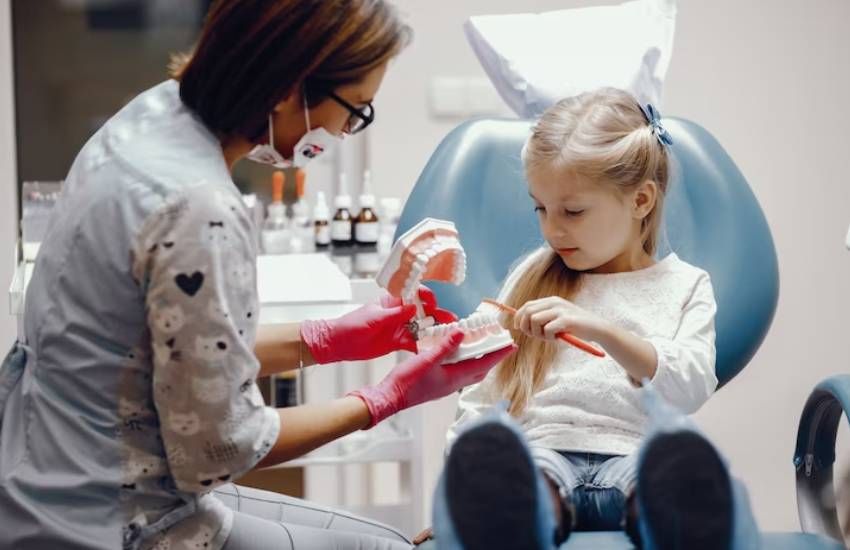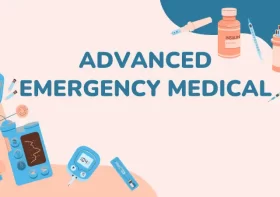Keeping Your Child’s Smile Healthy: Best Practices In Pediatric Dentistry

Pediatric dentistry is a branch of dentistry that focuses on providing preventive and therapeutic dental care to children from infancy through the teenage years. It is essential for children to receive regular dental care to ensure their overall oral health. Pediatric dentists are specially trained to provide care to children, and they have the skills and knowledge to help kids develop and maintain proper oral hygiene habits. This article will discuss the importance of pediatric dentistry and best practices for keeping your child’s smile healthy.
What Is Pediatric Dentistry?
Cookeville pediatric dentistry is a branch of dentistry focused on providing dental care to children from infancy through the teenage years. Pediatric dentists specialize in treating children and are trained to provide preventive and therapeutic dental care to help kids develop and maintain healthy smiles.

Why Is Pediatric Dentistry Important?
Pediatric dentistry is important because it helps ensure that children have healthy teeth and gums. Regular dental care is important for children of all ages to help prevent cavities, gum disease, and other oral health problems. Pediatric dentists are specially trained to treat children, and they understand the importance of prevention and early intervention in maintaining a child’s oral health.
How To Find The Right Pediatric Dentist?
When choosing a pediatric dentist, it is important to find one who is experienced in treating children and understands their unique needs. It is also important to find a dentist who is patient, understanding, and who makes your child feel comfortable. You should also ask about the dentist’s experience with children, the types of treatments they offer, and the office atmosphere.
Tips For A Positive Dental Experience For Kids
- Introduce your child to their dentist: Most kids are scared when they first go to the dentist. So it’s important to introduce your child to their dentist before their first appointment. This will give your child an opportunity to get to know the dentist, ask questions and become familiar with the office.
- Use positive reinforcement: When taking your child to the dentist, use positive reinforcement to encourage good behavior. Praise your child for positive behavior, such as sitting quietly or letting the dentist examine their teeth.
- Explain the procedures: Let your child know what to expect during the visit. Such as the exam and cleaning, so they can feel more at ease.
- Offer rewards: Offer rewards after the visit, such as a special treat or activity, to reinforce positive behavior.
- Use distraction: Bring your child’s favorite toy or book to the appointment to help distract them from any discomfort or fear.
- Choose a kid-friendly dentist: Look for a dentist who specializes in pediatric care and has a kid-friendly environment.
- Talk to the dentist: Make sure to talk to the dentist about any concerns you may have. Such as how to prevent cavities or how to stop thumb-sucking.
- Educate your child: Teach your child proper oral hygiene habits. Such as brushing and flossing, to help them maintain a healthy smile.
Types Of Treatments Offered By Pediatric Dentists
- Dental Cleanings: Pediatric dentists offer preventive dental care, including routine dental cleanings and exams.
- Fluoride Treatments: Fluoride treatments help protect teeth from decay and can help reverse early signs of cavities.
- Sealants: Sealants are thin resin coatings that can be applied to the surfaces of molars to help protect them from decay.
- Pulpotomies: A pulpotomy is a treatment used to remove the infected pulp of a primary tooth.
- Space Maintainers: Space maintainers are appliances used to preserve the space of a baby tooth. When it has been prematurely lost due to injury or decay.
- Orthodontics: Orthodontic treatments may be recommended to improve the alignment of the teeth and jaws.
- Extractions: Extractions may be necessary to remove a tooth that is damaged or decayed beyond repair.
- Pulpectomies: A pulpectomy is a procedure used to remove the entire pulp chamber of a primary tooth.
The Benefits Of Early Dental Care In Children
It is important for children to begin visiting a dentist as early as possible. Early dental care can help prevent cavities and other oral health problems. It can also help to detect and treat any problems early, which can help prevent future problems. Additionally, regular visits to the dentist can help children develop healthy oral hygiene habits, which can last a lifetime.
How To Prepare Kids For A Visit To The Pediatric Dentist?
Preparing your child for a visit to the pediatric dentist can help to ensure a positive experience. You can help prepare your child by talking to them about the visit and answering any questions they may have. You can also read books about going to the dentist with them. And take them to the office for a “test drive” before their actual appointment. Lastly, you can also bring a favorite toy or stuffed animal to the appointment to help them feel more comfortable.
Conclusion
Pediatric dentistry is an important part of maintaining a child’s overall oral health. It is important to find a pediatric dentist who is experienced in treating children and who makes your child feel comfortable. Establishing positive oral hygiene habits at home and preparing your child for visits to the dentist can help ensure a positive dental experience for your child. Regular dental care is essential for children of all ages to help prevent cavities, gum disease, and other oral health problems. Pediatric dentists offer a variety of treatments to help children maintain healthy smiles and the benefits of early dental care in children cannot be overstated.



